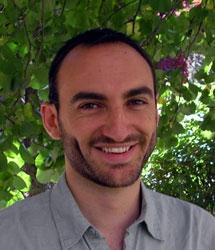Ecosystem restoration: New site verified in Chile against restoration standard
An area of only 1,518 hectares intended for restoration, may seem insignificant in a country that totals more than 756,102 square kilometres. Nonetheless, a patch of Chile's Comuna de Retiro in the Región del Maule plays an important role in its restoration efforts.
Situated in the central part of Chile, CAF El Álamo has recently become the first company in South America, and second worldwide, to be verified against the Field Verification Standard of Forest Ecosystem Restoration. This poplar plantation was initially certified against the Forest Stewardship CouncilTM (FSCTM) Chain of Custody Standard two decades ago but have since designated 1,518 hectares for restoration and this has been verified under the new standard developed by Preferred by Nature.
Since setting up shop in 1913, CAF El Álamo has counted on the poplar tree in its production for a variety of smaller wooden items such as matches, chopsticks, as well as popsicles, and ice cream sticks. Aside from that, they also produce tongue depressors for the health care industry and wooden cutlery, such as spoons, forks, and knives.
Today, the company annually yields around 45,000 cubic metres of certified poplar cultivated in 14-year cycles from its plantations, of which the site in Comuna de Retiro is one of them. Receiving the verification against the Field Verification Standard of Forest Ecosystem Restoration will guide the company to a more environmentally friendly operation, according to Jaime Venegas, Forestry Manager at CAF El Álamo.
"Without a doubt, CAF El Álamo's commitment to environmental protection is the main reason for us applying for the verification. We wanted to demonstrate that our integrated management strategy respects the sustainable use of the soil, water, and living resources shared by our forests," said Venegas.
Small area, high impact
"With the Restoration Plan, which is already being implemented, we hope to be able to continue creating biological corridors that facilitate and enrich the protection zones with species," said Venegas.
CAF El Álamo's site in Comuna de Retiro belongs to Chile's Mediterranean zone characterised by cold and rainy winters as well as dry and hot summers. The restoration plan CAF El Álamo is implementing comprises of several pledges, including preventing the proliferation of invasive species and promoting native species by establishing said corridors that the wildlife can freely roam. However, the plan's main objective is to improve water conservation by maintaining and enhancing the vegetation cover. This is part of the ongoing monitoring efforts CAF El Álamo is signing up for by obtaining the verification against the Forest Ecosystem Standard.
"We have seen what a difference a company can make when they commit to sustainability. CAF El Álamo is an example of this by constantly looking at how to improve their operation. Not only at management level but also on important and sensible topics such as those related to social and environmental challenges," commented Freddy Peña, Preferred by Nature's Regional Director for Latin America.
CAF El Álamo operates 2,671.5 hectares of certified plantation under the FSC Forestry Management and Chain of Custody Standard, and 375.8 hectares under the Rainforest Alliance™ Sustainable Agriculture certification. Additionally, they have verified a specific zone as a high conservation area considering its cultural and religious role to the surrounding community.
A pioneer in a needed wave of change
There are 151.8 hectares of CAF El Álamo's site in Comuna de Retiro, set for restoration and verified against Preferred by Nature's Field Verification Standard of Forest Ecosystem Restoration, but this figure is expected to grow to 244 hectares by 2027.
The Chilean company's experience is, hopefully, followed by peers around the country adopting the Forest Ecosystem Restoration, notes Richard Z. Donovan, an independent senior forest advisor, who had advised Preferred by Nature on the standard development.
"This restoration verification provides a reference for what restoration should look like in Latin America, and for Chile in particular, where the Government of Chile has committed to doing restoration," said Donovan.
There is a profound need for environmental rehabilitation in Chile. The narrow country is seriously affected by desertification and land degradation, with nearly half of its area risking soil erosion. To combat degradation plans to restore 500,000 hectares of land under Initiative 20x20 have been drawn up. Preferred by Nature is a technical partner to the international project seeking to change the dynamics of land degradation of more than 50 million hectares across Latin America and the Caribbean.
"While there might be questions like 'what does restoration mean' and 'how do you achieve it,' the CAF El Álamo example shows one of the ways. It offers the pathway for attaining Chile's objectives in restoration as for other Latin American countries," shares Mateo Cariño Fraisse, Land Use Programme Manager and Preferred by Nature representative at the Initiative 20x20.
The Field Verification Standard of the Forest Ecosystem Restoration was launched in 2020 and is a versatile tool for restoration projects across the globe.
Click here to learn more about the Standard and how it can be applied to your project, or get in touch with us if you would like to know how you can benefit from getting your project verified.
Feature image: Tranque Copihue/CAF El Álamo
News image: Arturo Burgos Tarrasón / Preferred by Nature




